- Home
- Joel Goldman
Final judgment lm-5 Page 15
Final judgment lm-5 Read online
Page 15
Mason stared at Fish and started to breathe again. The old man smiled at him. “You knew my father?”
“Sit down and I’ll tell you a story. You were what-three, four years old when your parents died?”
“Three,” Mason said, sitting and leaning forward in his chair, hands wrapped around his cup of tea.
“Who took you in?”
“My Aunt Claire.”
“A very disagreeable woman,” Fish said, his hand raised to blunt Mason’s reply. “I know, I know. You think she hung the moon. Maybe she did, but I guarantee the moon didn’t appreciate it.”
Mason laughed. “She is tough and she’s not a member of your fan club either.”
Fish perked up, arching the folds of skin above his eyes into canopies. “You told her about me?”
“She invited me to dinner for tonight, but I told her you got to me first.”
“What did she say?”
“That you didn’t deserve a lawyer like me.”
“Hah!” Fish slapped his palm hard against his knee. “She’s still the sanctimonious keeper of all that’s sacred. Your aunt and I had a go-round or two. She never cared for me and I never lost sleep over her. What do you think? Do I deserve a lawyer like you?”
“So far. How did you know my father?”
“I met your father, mother, and aunt through the synagogue. I was on the membership committee and they were new members. You might say I took them in, made them feel at home-introduced them to other people. A few years later, I got into some difficulty with a few of my fellow congregants. They were unhappy with an investment I’d recommended and wanted to run me out of the synagogue for duping them. The bylaws said I could be kicked out for acts of moral turpitude, which, being very religious, these people defined by the amount of money they lost.
“The board of directors called a closed meeting to decide what to do. Your father found out about the meeting and asked to speak to the board on my behalf. No one else did. I had no idea he was going to be there. He just marched into the meeting and asked to be recognized. He was a tall man, your father, like you, and he had a quiet way of speaking that made people listen. The board members were so surprised, they didn’t know what to do, but they let him talk. He said that he didn’t know me that well but that I’d been kind and good to him and his family. He talked about how easy it was to get caught up in something that was never intended; how things could go wrong in an instant without anyone ever intending for that to have happened, and how all of us deserved a second chance so we could set things right.”
The image of his father filled Mason with pride, restoring polish to a tarnished memory.
“What happened?”
Fish hauled himself out of his chair and picked up Mason’s cup. “Refill?” Mason nodded. “I’ll tell you what happened. Your father left the room. I told the board I would pay the people back and they let me stay. I never got the chance to thank your father. That was the night your parents were killed in a car accident. It was raining like hell when I drove home. Nearly had a wreck myself.”
Mason was numb, his arms and legs pinned to his chair as Fish lumbered toward the kitchen and disappeared. The newspaper account of the accident said his father had lost control on a slick, wet road; that their car had crashed through a guardrail and run down an embankment, and his parents had been pronounced dead at the scene. The investigating police officer blamed his father, calling it intentional.
Claire had explained when he finally forced her to tell him the truth. His father had been having an affair with Brenda Roth. He tried to break it off and she accused him of rape. He was supposed to turn himself in to the police the next day. None of that ever made the papers. It was a different time in journalism.
Fish came back, carrying two steaming mugs, the mixed aromas of tea and coffee rousing Mason.
“What did you hear about my father after he was killed?”
Fish lowered himself into his chair, careful with his coffee, sipping it before he answered. “There are always stories, especially after a tragedy. People love them. When they tell enough of them about you, you stop listening. So, I don’t listen and I don’t remember. What I do remember is that your father took a chance for me when he had bigger problems of his own.”
“Maybe was talking about himself when he stood up for you.”
“Maybe he was talking about both of us. What matters is that he was there when no one else was. That was enough for me. I repaid the people who wanted to throw me out. I never had the chance to repay your father until now.”
Mason paced the room, setting his cup on the mantel above the fireplace next to a photograph of Fish with his daughters and grandchildren. “Where are their husbands, your sons-in-law?”
“Always out of town on business. My daughters hated me for being gone all the time, then they married men who do the same thing.”
“I thought they hated you because you were a con man.”
“Of course they do. But people will forgive a lot if you are there for them when they need you. I never was.”
Mason looked at Fish. He saw a lonely old man filled with regret who was looking for a way to balance the books even if the credits wouldn’t match the right debits. He looked around the living room. It wasn’t a storehouse of memories so much as it was a reminder of lost opportunities. He caught his reflection in a mirror hanging in the front hall. The low light and distance made his image shimmer and shift as if he might disappear in an instant only to materialize thirty years from now, heir to Fish’s regret.
“There is a woman named Vanessa Carter,” he began.
Fish listened as Mason told him about Blues, Ed Fiori, and Vanessa Carter. He interrupted occasionally with questions, grunted at some of the details, chuckled when Mason told him that Vanessa Carter would have granted bail for Blues anyway. He nodded with understanding when Mason explained again why the photograph of Blues outside Rockley’s apartment made it impossible for Mason to continue representing him. He let out a long sigh when Mason finished, pushed himself out of his chair, and disappeared into the kitchen, coming back with a fresh cup of coffee.
“So, this conflict of interest you’re so worried about-I don’t think it’s a conflict at all.”
“Then you weren’t listening. The FBI has to give the photograph of Blues to the cops sooner or later. When they do, the cops will be convinced you killed Rockley. I can’t explain the photograph without turning myself in.”
“So we’ll find the real killer. Problem solved.”
“We?”
“Yes, we. There’s an angle to all of this that ties the blackmailand the murder together. We have a lot better chance of figuring it out if we work together. I’ll take the U.S. attorney’s offer. It’s the only way to find out what they’re up to. You have to stay on my case because that’s the only way we can help each other.”
“Avery, a lawyer has to put his client’s interest above his own. I can’t do that if I’m trying to save my ass and yours at the same time.”
“Look at it this way-if you save one of our asses you’ve got a lot better chance of saving the other.”
Mason looked down at Fish, whose wide body filled the chair as if he’d been poured into it. “You’re taking a big chance.”
“I don’t think so. You trusted me with the truth. Who does that? It’s good enough for me.”
FORTY
Mason knew a lawyer who described his practice as juggling knives. Every case was a gleaming, razor-sharp blade arcing over his head, waiting for him to grab it and toss it back in the air before he caught the next one in his neck. Mason knew the feeling and the difference between their practices. If his friend took one in the neck, he bled his client’s money. Mason and his clients bled the real thing.
Studying his dry erase board early Monday morning, he saw too many knives to possibly avoid them all. He wrote Galaxy Casino in the upper right-hand corner and Carol Hill in the upper left. Across the top, he wrote Vanessa Car
ter, connecting her name to both Carol Hill and Galaxy. On the left-hand margin he drew a line down from Carol Hill connecting her to Mark Hill, Ed Fiori, and, at the bottom, Vince Bongiovanni. He listed Charles Rockley, Johnny Keegan, and Al Webb in a vertical parade on the right-hand margin ending in the bottom corner with Lari Prillman. He filled in the bottom margin with Avery Fish in the center.
He stepped back from the board and realized what he’d left out. He wrote Lou Mason in the middle of the board, like a bull’s-eye, then drew more lines, each one a dagger aimed at him. On the line between him and Vanessa Carter he wrote deadline Friday. He connected Ed Fiori, Vanessa Carter, Al Webb, and Lari Prillman to one another and to him with audio tape, then erased it using CD instead.
He wrote Why me? on the line connecting him to Johnny Keegan. He wrote Why Fish? between Fish’s and Rockley’s names. He finished by writing Get out on the line between his name and Fish’s, then added Can’t.
The exercise in visualization didn’t produce any answers. It did make clear how little he knew and how little time he had to figure it all out. The answers wouldn’t suddenly appear if he just sat in his office and waited for them. He closed the cabinet doors over the dry erase board and called Pete Samuelson.
“We’re ready to make a deal,” he told the assistant U.S. attorney.
“Outstanding. When can you come downtown?”
“You come here. Tonight, ten o’clock. We’ll meet you in the bar downstairs. Just you and Kelly Holt.”
“You’ve got to be kidding.”
“What’s the problem? Past your bedtime?”
“I don’t get it. What’s wrong with meeting in an office during business hours?”
“You don’t have to get it. All you have to do is show up.” Mason hung up before Samuelson could protest any more.
The phone rang an instant later. Samuelson’s number flashed on Mason’s caller ID.
“Quit bitching about working late. Just be there,” Mason told him, hanging up before Samuelson could utter a word.
His next call was to Vince Bongiovanni.
“You better have a good reason for stiffing me twice in one day,” Bongiovanni told him.
“What qualifies for a good excuse other than the truth?”
“For you, getting killed; for me, getting laid.”
“I’ll take your lie over mine. Look, I’m sorry. I’ll tell you about it if and when I can, but that’s not today. I need to talk to Carol as soon as possible. You name the time and place and I’ll be there.”
“I don’t know what’s going on here, Mason, but you’re going to have to tell me. Frankly, I didn’t mind that you didn’t show up since I had an appointment with my personal trainer, but Carol went nuts. She wants to talk to you and I mean now.”
“I’m ready. Where? Your office?”
“No, and not at your office either. She wants to meet you at the Galaxy.”
“The casino? Why?”
“Not the casino. The hotel next to the casino. Room 1201. She’s waiting for you.”
“Are you going to be there?”
“Are you kidding? I’d have to get killed and laid before I’d let you talk to her alone,” Bongiovanni said.
Gambling in Missouri was one of the all-time great public relations coups. Promoters promised quaint two-hour riverboat cruises with five-hundred-dollar loss limits. The voters said bring it on and the gaming companies did, transforming riverboats into permanently anchored barges of a hundred thousand square feet or more accommodating casinos rivaling those on any river or reservation in America. Time and loss limits gave way to billboards bragging about which casino had the loosest slots, each ad including a toll-free number for a gambling addiction hotline, written in microscopic print not meant to be read.
The slots were tight enough to finance hotels next door on dry land, the casinos improving on the Field of Dreams prophecy with their own-if you build it, they will come, even if you take their money. Mason had been to the casino when it was owned by Ed Fiori and called the Dream. He hadn’t been back since Galaxy Gaming took it over and he’d never been to the hotel that adjoined the casino. It continued the Galaxy theme, splashing glitter-covered stars and other celestial bodies throughout, tempting customers to blast off.
When Mason arrived, the lobby was packed with a senior citizen group checking out after a weekend extravaganza. Mason couldn’t tell the blue-haired winners from the gray-haired losers. He wound his way through them, finding the elevator and taking it to the twelfth floor.
He assumed that Johnny Keegan’s murder had hit Carol Hill harder than Charles Rockley’s, especially after his warning to Bongiovanni that Mark Hill was a prime suspect and Carol a potential target. His warning must have prompted her to move out of the house and into the hotel.
Mason wondered whether Carol knew why Keegan had Mason’s name in the palm of his hand when he died, but the timing of Keegan’s death made that doubtful. Mason and Blues had braced her husband at the bar in Fairfax just after six o’clock on Friday evening. Dennis Brewer, the FBI agent, and his buddies were working Hill over when Mason and Blues left the parking lot of the bar. Bongiovanni got his tip that Rockley was the dead man in Fish’s trunk at around seven. He was waiting for Mason at Blues on Broadway a little over an hour later. Keegan was gunned down sometime after he got off work at eight while Bongiovanni and Mason were talking. The cops told Mason about Keegan at midnight and Mason broke the news to Bongiovanni after the cops left. Mason couldn’t find any point in that time line for Carol Hill to connect him to Johnny Keegan.
FORTY-ONE
Room service trays stacked with dirty dishes and unclaimed copies of USA Today littered the hallway floor as Mason counted down room numbers, finding 1201 in an alcove at the end of the corridor. He knocked once and Bongiovanni opened the door, looked down the hall as if he was checking for anyone who might have seen Mason, then motioned him inside.
Room 1201 was a suite with a large living room, a mini-kitchen, and a bedroom separated from the rest by French doors. Carol stood at the living room window overlooking the casino and the Missouri River, dressed in a bathrobe, a towel around her head and a cigarette jammed in the corner of her mouth. A king-size bed was visible through the open French doors, the linens tossed as if Carol had slept either poorly or with a friend. It was a high roller’s hangout, the kind the casino would use to reward guests with a track record for dropping big bucks. It was too rich for a blackjack dealer on leave for emotional distress.
“Lou Mason, say hello to Carol Hill,” Bongiovanni said.
The morning sun broke against the window, the glare obscuring her features. She stubbed the cigarette out in an ashtray and met him in the center of the room, her hand trembling when she shook his. Fruit-scented soap and shampoo mixed with tobacco smoke in a sweet but trashy off-balance fragrance. Just out of the shower, her skin was pale and a bit rough, the kind of complexion that did better with makeup. Her mouth was small, and he thought her upper lip had been shot full of collagen until he realized it was swollen and that the dark yellow ring round her left eye was man-made. She was wearing a bulky white terry cloth robe that blunted her figure, though she moved enough beneath it that he could tell it was the only thing she was wearing. Stripped, scrubbed, and beat up, she was barely holding herself together. Mason was ready to award her damages for emotional distress, though he wasn’t certain who was liable.
“I’m sorry about standing you up twice on Saturday,” he said.
“It’s okay,” she said in a whisper, clearing her throat. “Gotta quit smoking,” she said, coughing again.
“Get dressed, honey,” Bongiovanni said. “I’ll keep Mason company.”
Carol nodded and closed the French doors behind her. Bongiovanni sat on an overstuffed couch, put his feet up on the coffee table, and gestured Mason to a chair.
“Nice digs,” Mason said. “If this is a Galaxy employee benefit, tell me where to apply.”
“Try inheritance.
Ed Fiori was my uncle. Carol’s too. We’re first cousins. Our mothers were Ed’s sisters. He owned the casino and the hotel, but you knew that.”
Mason did know that. What he didn’t know was whether Fiori had been close enough to Bongiovanni to have shared the story about Mason and Judge Carter. Fiori had been a little bent but not enough that he couldn’t get a gaming license. Mason had never known who Fiori’s lawyers were, but it made sense that he’d consult his nephew the lawyer even about things that were outside Bongiovanni’s practice. Keeping things in the family was another way of keeping things quiet.
“I did know that.”
“You were there when he was killed, if I remember right.”
“I was,” Mason said, not interested in talking about the details. “I’m sorry.”
Bongiovanni waved his hand at Mason. “Hey, don’t be sorry. You didn’t kill him and the bastard that did is dead. Shit happens. But, I’ll tell you what. There was a hell of a mess after he died. Soon as I heard, I raced down to the boat to secure his office before the cops showed up. I didn’t know everything Ed was into, but I didn’t want the cops to find out first. Found lots of interesting stuff. He even had one of those secret tape-recording setups, just like every president since Kennedy.”
Mason studied Bongiovanni, trying to decide if Bongiovanni was playing with him, dangling a baited hook. If Bongiovanni had the tape, he wouldn’t use it to blackmail Judge Carter to rule against his own client, especially since Carol was his cousin. Still, Mason thought he detected a glint in Bongiovanni’s eyes and a curl at the corners of his mouth like he knew what he was doing and was enjoying it. Mason refused to bite, changing the subject instead.

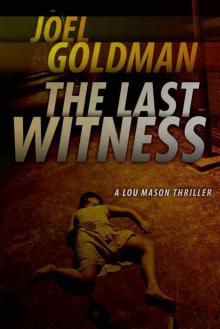 The last witness lm-2
The last witness lm-2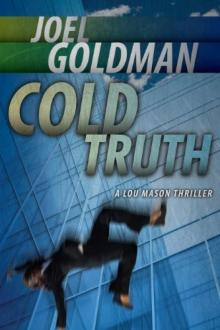 Cold Truth
Cold Truth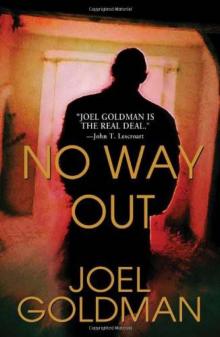 No Way Out (2010)
No Way Out (2010)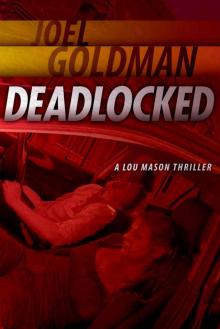 Deadlocked (Lou Mason Thrillers)
Deadlocked (Lou Mason Thrillers)![[Lou Mason 01.0] Motion to Kill Read online](http://i1.bookreadfree.com/i1/03/24/lou_mason_01_0_motion_to_kill_preview.jpg) [Lou Mason 01.0] Motion to Kill
[Lou Mason 01.0] Motion to Kill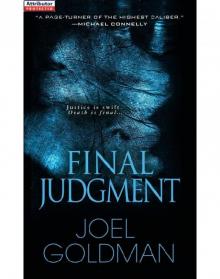 Final Judgment
Final Judgment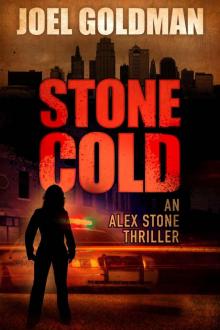 Stone Cold
Stone Cold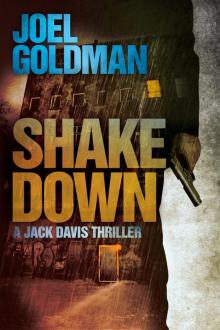 Shakedown
Shakedown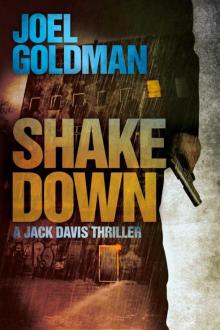 Shakedown jd-1
Shakedown jd-1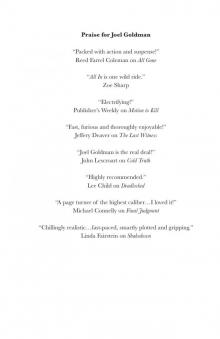 All Gone
All Gone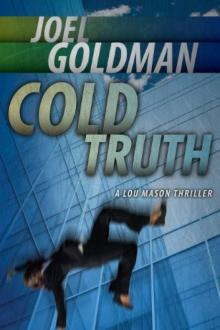 Cold truth lm-3
Cold truth lm-3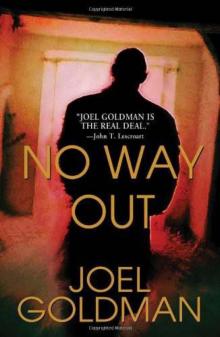 No way out jd-2
No way out jd-2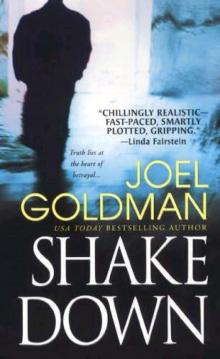 Jack Davis Mystery - 01 - Shakedown
Jack Davis Mystery - 01 - Shakedown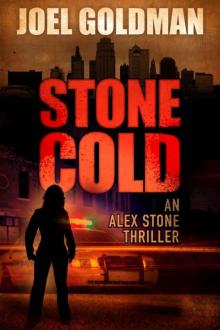 Stone Cold as-1
Stone Cold as-1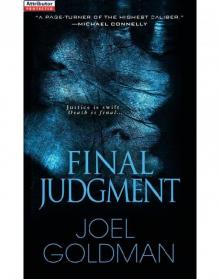 Final judgment lm-5
Final judgment lm-5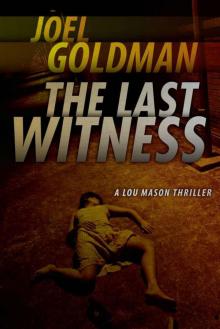 Lou Mason Mystery - 02 - The Last Witness
Lou Mason Mystery - 02 - The Last Witness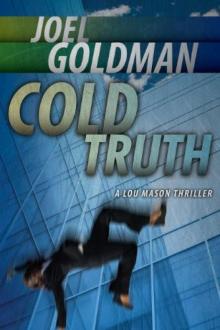 Lou Mason Mystery 03-Cold Truth
Lou Mason Mystery 03-Cold Truth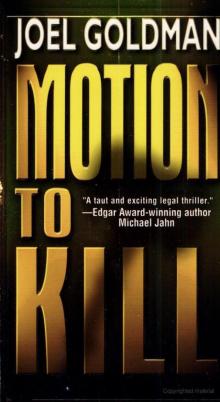 Motion to Kill
Motion to Kill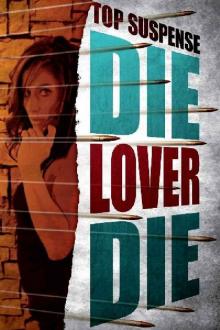 Die, Lover, Die!
Die, Lover, Die!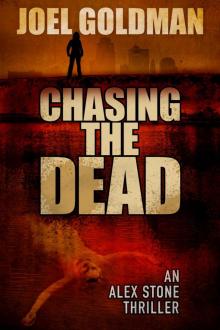 Chasing The Dead (An Alex Stone Thriller)
Chasing The Dead (An Alex Stone Thriller)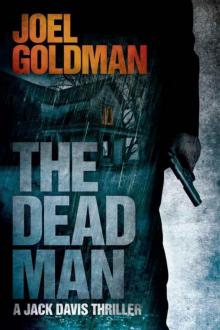 The Dead Man
The Dead Man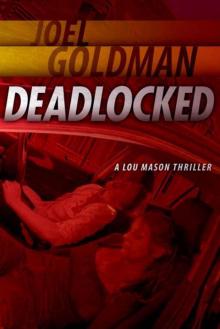 Deadlocked lm-4
Deadlocked lm-4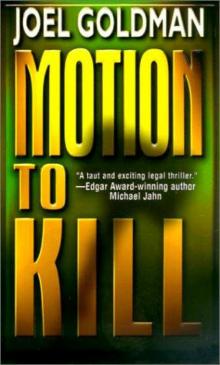 Lou Mason Mystery - 01 - Motion to Kill
Lou Mason Mystery - 01 - Motion to Kill Die, lover, die
Die, lover, die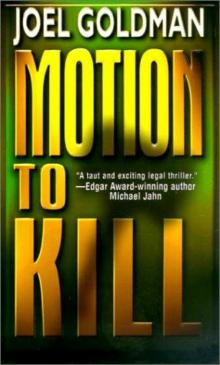 Motion to Kill lm-1
Motion to Kill lm-1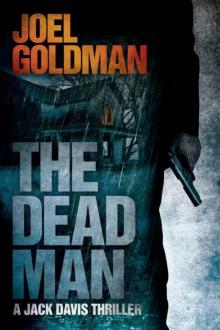 The Dead Man jd-3
The Dead Man jd-3